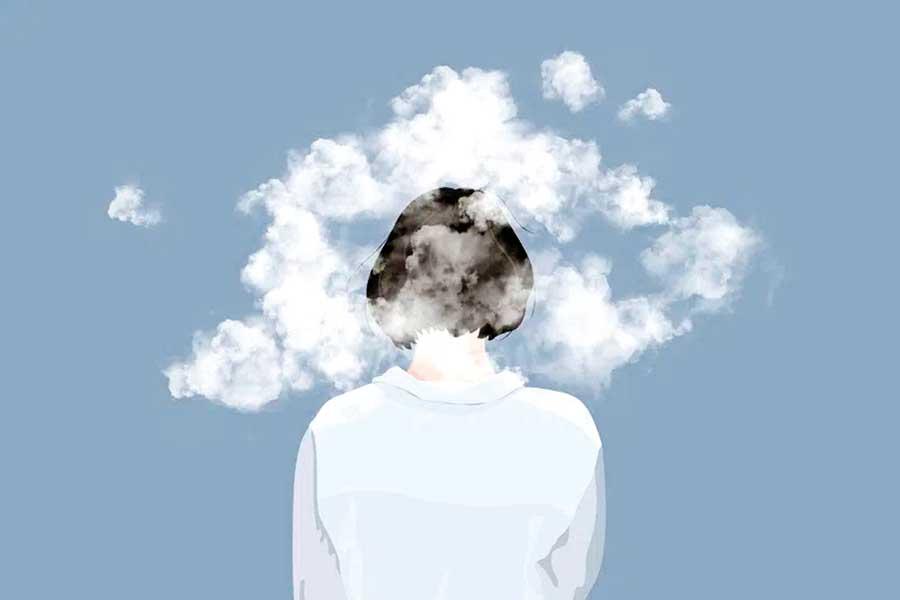Reply To:
Name - Reply Comment
Last Updated : 2024-05-20 18:11:00

Borderline Personality Disorder (BPD) can be a difficult and overwhelming condition to live with, especially for young people. In this article, a youth shares their personal experience and perspective on coping with BPD. From breaking the stigma surrounding mental health to navigating the highs and lows of this complex disorder, her story sheds light on the challenges and triumphs of living with BPD. Join us as we delve into the world of BPD and explore what it’s like to walk the tightrope of this condition.
personal experience and perspective on coping with BPD. From breaking the stigma surrounding mental health to navigating the highs and lows of this complex disorder, her story sheds light on the challenges and triumphs of living with BPD. Join us as we delve into the world of BPD and explore what it’s like to walk the tightrope of this condition.
She has now learned healthy coping mechanisms through therapy and is doing better at university securing better grades as well. She’s looking forward to spreading awareness and supporting others
with BPD
Suicides in the country are reported considerably higher this year compared to previous years, according to Sri Lanka Medical Association. With more and more focus on mental health, many people appear to be encouraged to open up and share their personal experiences with psychological disorders that they believe are often overlooked and overshadowed in the Sri Lankan mental health field.
One such rarely discussed mental health disorder is Borderline Personality Disorder (BPD) also known as Emotionally Unstable Personality Disorder.
We talked to Maheesha (Not her real name) about her personal experience as a BPD-diagnosed university undergraduate, and how she has dealt with it in her daily life.
As a disorder that is characterised by a long-term pattern of unstable interpersonal relationships, a distorted sense of self, and strong emotional reactions, BPD is a psychological issue that any individual we associate with in our day-to-day life might be suffering from without proper diagnosis or help.
“It is a flood of sudden, unexpected, strong emotions,” Maheesha said.
“I get stuck in these overwhelming emotions with no opportunity to opt out of them. It is suffocating and completely out of my control and I lose touch with my own self in the process,” Maheesha explained.
BPD is a psychological issue that any individual we associate with in our day-to-day life might be suffering from without proper diagnosis or help
She said that these were common feelings that people feel but in her case, it was exaggerated and intense beyond comprehension or comparison.
She told us that the most difficult emotion that she has to deal with every attack is the shame that follows it.
“It is the guilt and the repetitive thought that I am flawed that plunges me into an unnecessary yet unavoidable spiral of self-loathing.”
She explained that BPD often comes with the inability to maintain healthy relationships and that has always been a problematic part of her life.
Maheesha recalls how she became extremely suicidal one day simply because someone made a harmless and funny remark about her behaviour.
“It was normal to joke around with your friends and even if you get hurt by some of their words, people tend
to forget and move on.”
“It is difficult for me because my mind doesn’t work that way. It emphasises every emotion and makes it unbearable for me even though I don’t want to think that way at all.”
Maheesha also explained how her behaviour would turn manipulative just to redeem these emotions. She said that she had to admit that she has come off as threatening and problematic to most of her close people. And as much as she hates doing it, it’s something completely out of her control.
Since regulating emotions is one of the key problems of someone suffering from BPD, Maheesha explains that it has always been a challenge to present herself as someone reliable. She stressed that she doesn’t want people to simply judge her as someone dramatic and delusional and ignore her frustration.
“It is a medical condition that needs help like any other health issue. I always wished people took more time to understand this instead of bullying or scolding me so that I won’t feel isolated in my disorder” she said.
“It is a medical condition that needs help like any other health issue. I always wished people took more time to understand this instead of bullying or scolding me so that I won’t feel isolated in my disorder”
When we further asked Maheesha about the dangerous aspects of BPD, she pointed out that self-harm is prevalent among BPD patients.
“When feelings get overwhelming, you desperately try to find ways to let it out or do something about it and most of the time these reactions are tied to self-loathing and guilt,” she said.
According to Maheesha, this is what primarily causes self-harm. She added that self-harm also helps them connect and understand their emotions in an unhealthy and dangerous manner. All this can be addictive and life-threatening. Maheesha recalls how the guilt from self-harm made her condition worse over and over again.
“It feels like a trap, a loop, and you get helpless beyond comprehension”.
Maheesha always wondered why she felt things so intensely because her natural reaction to everything is unnecessarily serious and whenever she gets into a panic attack, she scares people away from her. She mentioned how people naturally look at her as someone very difficult and upsetting to deal with, causing her to lose friends and trusted people as well.
Losing a trustworthy relationship and friends pushes her back into the same cycle of intense uncontrollable emotions resulting in the aforementioned self-loathing and self-harm.
“I used to take the frustration out of myself because I always felt like it was my fault.”
Maheesha recalls how she became extremely suicidal one day simply because someone made a harmless and funny remark about her behaviour
Maheesha admits that she was initially reluctant to label her mental condition for fear of being oppressed and shunned by those around her.
But with helplessness and the desperate need to overcome life and her university dream, she decided to get professional help.
“There comes a point where you realise that asking for help is the strongest step you can take,” Maheesha said.
“I knew I wanted help, I knew it was something inherent, an actual health issue that needs proper addressing. I realised that diagnosis and professional help would help subdue both my guilt and my condition and it did.”
Maheesha has now learned healthy coping mechanisms through therapy and is doing better at university securing better grades as well. She’s looking forward to spreading awareness and supporting others with BPD. “I was able to reclaim a huge part of my life because of therapy.
I’m still recovering and it is a journey. The recovery process depends from person to person but it is definitely something that I believe we shouldn’t be reluctant to do,” Maheesha said.
‘Let’s talk about mental health’ is a series of articles intended to share patient perspectives of their struggles with mental well-being. Through these articles, we hope to inform, educate and reduce the stigma around mental health discussions.

Add comment
Comments will be edited (grammar, spelling and slang) and authorized at the discretion of Daily Mirror online. The website also has the right not to publish selected comments.
Reply To:
Name - Reply Comment
The state-run loss-making State Mortgage & Investment Bank (SMIB) has reveale
US authorities are currently reviewing the manifest of every cargo aboard MV
On March 26, a couple arriving from Thailand was arrested with 88 live animal
According to villagers from Naula-Moragolla out of 105 families 80 can afford
3 hours ago - 0 - 51
9 hours ago
20 May 2024

18 May 2024